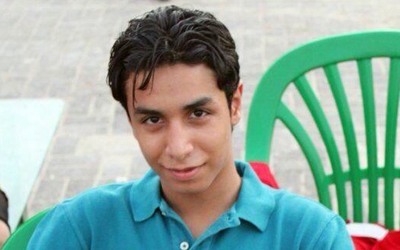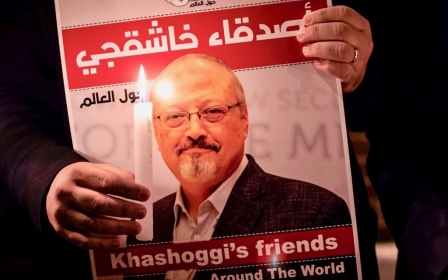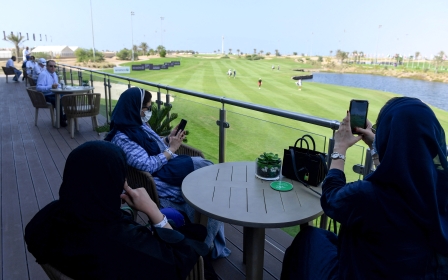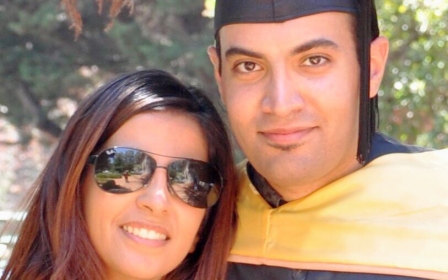Saudi Arabia: Father of political prisoner Ali al-Nimr briefly detained
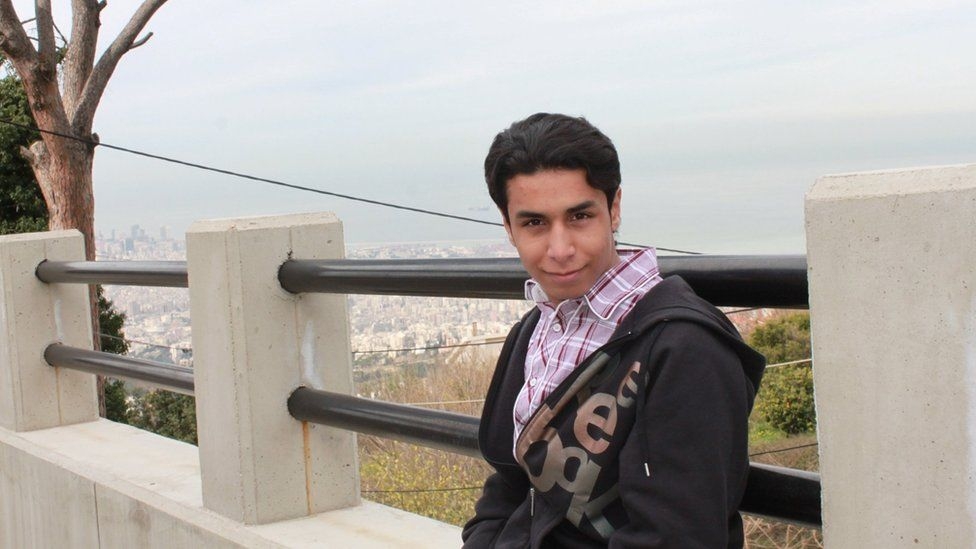
Saudi Arabia on Wednesday detained the father of Ali al-Nimr, a protestor who was arrested in 2012 and sentenced to death in 2014.
Nimr's death sentence was commuted earlier this month to 10 years in jail, following an international outcry from human rights groups. He has been in prison since 2012.
Taha al-Hajji, a lawyer for the Nimr family, told Middle East Eye that Mohammed Baqir al-Nimr was arrested on Wednesday following a raid on his home in the Eastern Province town of Awamiyah, home to a predominantly Shia population and where pro-democracy protests erupted following the Arab Spring.
There had been no explanation given for the raid. Hajji said electronic equipment was also seized, but no-one else from the household was arrested. "So far, no one knows the reason for the arrest. Usually, the security forces do not say so," the lawyer said.
He later said Nimr had been released on Friday afternoon.
New MEE newsletter: Jerusalem Dispatch
Sign up to get the latest insights and analysis on Israel-Palestine, alongside Turkey Unpacked and other MEE newsletters
Hajji pointed out that Mohammed Baqir al-Nimr was a "prominent intellectual" who had always maintained a "moderate" discourse with regards to the Saudi government, even after they executed his brother, the prominent Shia cleric Nimr al-Nimr, in 2016.
'The Saudi government always takes revenge on those who cause it harm or embarrassment'
- Taha al-Hajji, lawyer
"He made a lot of sacrifices and was patient despite the pain suffered during the past nine years. He was imprisoned more than once and shot," he explained.
"The Saudi government always takes revenge on those who cause it harm or embarrassment."
In early February, Ali al-Nimr, Dawood al-Marhoon and Abdullah al-Zaher had their death sentences commuted to 10 years in prison.
Nimr, Marhoon and Zaher had been arrested as minors in 2012 on terrorism-related charges and sentenced to death after they took part in anti-government protests during the Arab Spring uprising.
According to the human rights organisation Reprieve, the move was the result of a decree issued last year ending the execution of minors in the kingdom.
Tweeting about the detention, Lina al-Hathloul - sister of the recently freed women's rights activist Loujain al-Hathloul - said the move was evidence of the two-faced approach to human rights by the kingdom's de facto ruler, Crown Prince Mohammed bin Salman.
"After overturning the death penalty against Ali al-Nimr (who was arrested as a minor), Saudi authorities arrested his father," she wrote.
"MBS new policy : 1 concession => 2 crimes. Don’t be fooled by MBS, he is still the criminal he was two years ago."
Decree ends death penalty for minors
The kingdom's official ruler King Salman issued a royal decree in April 2020 ending the death sentence for crimes committed as a minor, ordering the maximum sentence to instead be 10 years in a juvenile detention facility.
A review of Nimr, Marhoon and Zaher's death penalty sentences had been ordered by Saudi Arabia's public prosecutor.
The 2016 execution of Ali's uncle Nimr al-Nimr, along with 46 others charged with terrorism, provoked major demonstrations across the globe and the burning of the Saudi embassy in Iran.
The rate of execution in the kingdom has doubled since 2015, when King Salman succeeded to the throne in January following the death of his half-brother, King Abdullah.
According to Reprieve, Saudi Arabia carried out at least 800 executions during the first five years of King Salman's rule. The kingdom is currently the world's third biggest executioner, following China and Iran, according to an annual report by Amnesty.
The country's imprisonment of women's rights activists such as Loujain al-Hathloul and the killing of critical journalist Jamal Khashoggi in Istanbul in 2018 have further provoked scrutiny of the kingdom's rights record.
Middle East Eye delivers independent and unrivalled coverage and analysis of the Middle East, North Africa and beyond. To learn more about republishing this content and the associated fees, please fill out this form. More about MEE can be found here.


